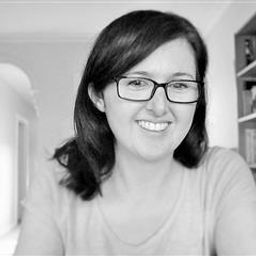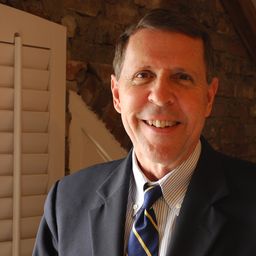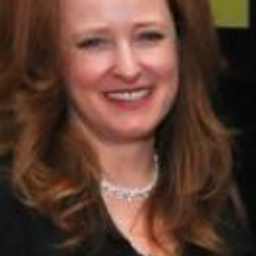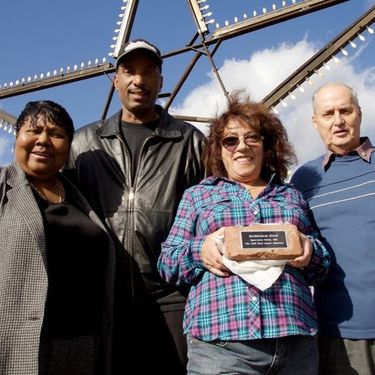
Elementy, w których Lisa Rogers uczestniczy
poniedziałek 6 czerwiec, 2016
Elementy, w których Lisa Rogers attends
piątek 3 czerwiec, 2016
What does heritage change for tourism? | Le patrimoine, ça change quoi au tourisme? Ce débat veut interroger les relations entre le tourisme et le patrimoine et dépasser ainsi les idées reçues sur l'antagonisme entre le tourisme "corrupteur" et le patrimoine qui en serait la victime. Il s'agit donc de repenser le tourisme comme un réel acteur du patrimoine, de sa valorisation et de son appropriation, y compris par les populations locales. Cela présuppose, au p...
Find out more about all the eras that shaped Montréal with this interesting walking tour, from the foundation of Fort Ville-Marie in 1642 to today’s modern city. The historic heart of the city and its adjacent Old Port will help illuminate the story of one of the greatest cities in the Americas. Your guide will lead you through a maze of narrow streets where you can find a multitude of historic buildings. Explore the birthplace of our metropolis and experience a special voyage back in time! ...
The west of Mile End is the fruit of the unlikely encounter between a French-Canadian artisans’ village, a new suburb at the turn of the 20th century marketed mainly to the English-speaking middle class, and the heart of Montreal’s Jewish life between the wars. Discover how these influences have shaped the neighborhood and the traces they have left. Presentation in English. Walking tour. Organization: Mile End Memories Fees: 16$ + taxes
Welcome addresses and cocktail, followed by the Concordia Signature Event "The Garden of the Grey Nuns". As the opening ceremony and cocktail take place in the former Grey Nuns' Motherhouse, recycled into campus residence and reading rooms by Concordia University, delegates will also have the possibility to discover the video Three Grey Nuns (3 minutes, by Ron Rudin and Phil Lichti. Three Grey Nuns recount their memories of communal life in the Grey Nun’s Motherhouse. Built...
Working with archival documents and the current-day morphology of the Grey Nuns' site, Dr Cynthia Hammond, Dr Shauna Janssen, in collaboration with Dr Jill Didur, will curate a series of installations and performances that speak directly to the rich heritage of a specific urban landscape: the gardens of the Grey Nuns' Motherhouse, now part of the Concordia University downtown campus. Visitors will have the opportunity to explore the lost working gardens of the Grey Nuns. As with other such...
sobota 4 czerwiec, 2016
Le patrimoine, ça change quoi ? Ou plutôt, qu'est-ce que c'est ? Et pour qui ? Ces questions sont à l'origine de cette exposition conçue par les étudiants à la maîtrise en muséologie UQAM-UdeM. L'opinion de la communauté uqamienne y est confrontée à des citations de chercheurs, avec comme résultat une mise en perspective originale du discours sur le patrimoine. __ How is heritage important? Or rather, what is heritage? And for whom? Those questions are at the core of this e...
What if we changed our views on heritage? And if heritage has already changed? While, on the global scene, states maintain their leading role in the mobilization of social and territorial histories, on the local scale, regions, neighbourhoods and parishes have changed. Citizens and communities too: they latch on to heritage to express an unprecedented range of belongings that no law seems to be able to take measures to contain, often to the discontent of...
Heritage practices often lead to social exclusion. As an "Authorized Heritage Discourse" (AHD) (Smith 2006) may define what is considered to be heritage, a certain set of social values can come to exclude other values. By formulating heritage policies which reproduce the existing AHD government may further such exclusion. Every now and then AHDs are challenged, leading to what political scientists like Ross (2007; 2009) call "cultural contestations" between groups. These are surrounded ...
Much is being made of the perceived breakdown of the nation-state, which was historically configured as a “container” of heritage formations, adopting and perusing local traditions where possible but oppressing them where deemed unsuitable. Migration is seen as eroding the rigid boundaries of this configuration, potentially liberating identities and heritages in the process. This session addresses the relationship between critical heritage and redefinitions of self, other, community and place...
How do borders shape heritage and its potential for change? Despite the growth of international connections in heritage studies, national, linguistic and disciplinary borders continue to structure scholarly and practical approaches to heritage. The aim of this session is therefore threefold. First we will address which borders limit our understanding of heritage today. What are the roles of linguistic, disciplinary, religious and national borders? Which methodologies are best suited to overco...
With sustainable development gaining momentum as a priority of UNESCO heritage policies, an increasing number of food-related nominations are being submitted for inscription on the lists of the Convention for the safeguarding of the intangible cultural heritage. The Mediterranean diet, traditional Mexican cuisine and the Japanese dietary culture of washoku are just some examples of this booming phenomenon. Since food and foodways are powerful references for self-representation and ident...
Many people are actively using working class heritage as a resource to reflect on the past and the present, and there is a growing tendency for the heritage of working class people to be interpreted and presented to the public in museums and heritage sites—see for example the Worklab network of museums. Working class communities and organizations also play active roles in creating a memory of their own past, and mobilizing this to sustain political action in the present. Drawing on scho...
In recent decades, the growth of the World Heritage industry has necessitated the reconsideration of scale. Formerly dominated by nation-states, some influential international organizations such as UNESCO and its advisory bodies (ICOMOS and IUCN) are now taking a strong role in decision-making through policy-making and implementation. Despite the power of the transnational organization and its relation with states parties, there is a growth of regionalism and “localism” in the heritage indust...
Most of what we experience as heritage emerges into conscious recognition through a complex mixture of political and ideological filters, including nationalism. In these processes, through a variety of devices (museums, scholarly research, consumer reproduction, etc.), dualistic classifications articulate a powerful hierarchy of value and significance. In particular, the tangible-intangible pair, given legitimacy by such international bodies as UNESCO, reproduces a selective ordering of cul...
niedziela 5 czerwiec, 2016
With sustainable development gaining momentum as a priority of UNESCO heritage policies, an increasing number of food-related nominations are being submitted for inscription on the lists of the Convention for the safeguarding of the intangible cultural heritage. The Mediterranean diet, traditional Mexican cuisine and the Japanese dietary culture of washoku are just some examples of this booming phenomenon. Since food and foodways are powerful references for self-representation and ident...
In many emerging economies of the Global South, new urban mega-projects are strategically reviving heritage into simulacra, copies without originals, intended to sell places. We refer to these projects collectively as "New Built Heritage." This type differs from earlier constructions of heritage by canonical state institutions such as museums and ministries of culture in the way its main goal is to differentiate and market places rather than solely to shape collective identities. This session...
"What does heritage change?" is a multifaceted question to which the answer(s) are in primary respects related to real-life negotiations among different groups of citizens, cultures, races, ethnic groups, sexual identities, and social classes about received, official and/or widely accepted or accomodated intangible attributes, cultural traditions, historic monuments, buildings, and other transmitted or revived historical legacies. Heritage designated by and for whom, for what motivations, an...
Directed by Tom Fassaert and presented by Marc Jacobs. ___ Doel, a Belgian village near the Dutch border, is disappearing quickly and deliberately. Not because of the four old nuclear reactors on its territory, but because the Flemish government decided that the village might block projects for new docks for the Antwerp harbour, plans developed since the 1960s. In the 21st century this process of officially encouraged depopulation is coming to an end: 2500 inhabitants i...
poniedziałek 6 czerwiec, 2016
As recent publications have demonstrated, the role of the expert in heritage conservation is a relevant, indeed imperative topic of discussion. On the one hand, the knowledge required to work in the field has evolved over time in response to changes in the definition of heritage. Once the exclusive domain of architects and historians, the expertise needed today draws on a broader scope of disciplines including urban planning, landscape studies, anthropology, economics and climatology, often m...
This proposal makes the case that heritage’s capacity for change may be dependent on a paradigm shift in how heritage is interpreted. With this paradigm shift in play, a question is then asked: Can authenticity be used as a design driver to resolve how best to incorporate the four pillars of sustainability in a building’s design? The proposal begins with a discussion about the difference between using heritage reactively and proactively. It then presents a brief introduction to the...
L’objectif de cette table ronde est de questionner une éventuelle ratification par le Canada de cet instrument multilatéral. La réunion se tiendra en français et en anglais avec interprétation simultanée. Elle prendra la forme d’exposés d’experts et de tables de discussion. Une consultation sera préalablement menée auprès des principaux groupes de praticiens du pays afin de recueillir leur avis sur la question de la ratification et de nourrir les échanges de la réunion. Dif...
Le patrimoine fait aujourd’hui l’objet d’attentions autant que d’agressions et de destructions. Cela peut s’expliquer par les difficultés de son identification ou de sa conservation. Cela peut plus profondément s’expliquer parce que, dès le départ, il célébre un événement ou conserve une mémoire qui peut être ou devenir une source de dissenssions et de conflits politiques. Enfin, sa reconnaissance suscite des gains économiques pour les uns mais des pertes pour les autres. Mais peut-être...
To celebrate our film series dedicated to heritage, sponsored by the Department of American Studies at the University of Maryland and the United States Chapter of the Association of Critical Heritage Studies, this event will spotlight the iconic Sugar Shack, which is rooted from Quebec to New-England and which is both the place of maple syrup production and of friendly gatherings during the maple syrup season. In a festive atmosphere, delegates will be invited to taste one of the essential of...
Directed by William Shewbridge and Michelle Stefano USA; 35 mins Presented by Michelle Stefano ___ After 125 years of operation, the Sparrows Point Steel Mill (Baltimore, Maryland) finally closed its doors in 2012. The film, “Mill Stories”, examines the importance of the mill from the perspectives of former workers and community members while connecting their story to the larger narrative of industrial boom and bust. The film seeks to amplify the voices of forme...
wtorek 7 czerwiec, 2016
To date, there has been much scholarly discussion and critique about how ideas and policies of "heritage" may be operating globally. There have also been ethnographic studies providing "on the ground" perspectives. In this session, we aim to establish a bridge between local-level empirical study and global heritage discourse. By addressing "heritage" in relation to processes of modernization and globalization in East Asia, we seek to investigate the dynamic communication between global herita...
Heritage has multiple, concurrent origins. It is performed and produced by individuals, groups and organizations, or institutions on various scales. It is a transformative process and thus closely connected to the transitional. In heritage, transitionality may be usefully conceptualized under the rubric of the liminal, which at its core anticipates change and transformation, structure-agency relationships, affect, and human experience—all significant issues in recent theoretical debates in th...
Le concept de patrimoine culturel immatériel (PCI) a fait l’objet de nombreux colloques et publications depuis la promulgation de la Convention pour la sauvegarde du patrimoine culturel immatériel de l’UNESCO en 2003, voire même avant. Toutefois, peu d’entre eux se sont attardés à la question de l’impact réel des systèmes et politiques mis en place pour favoriser le développement des pratiques culturelles transmises de génération en génération comme les arts et l’artisanat traditionnels, les ...
State dominance in heritage management has been a key area of attention in critical heritage studies. There is now a large body of work discussing how this dominance may result in the prioritization of national perspectives and interests over local ones and contribute to the marginalization of alternative interpretations of heritage by ethnic and religious minorities, immigrants and Indigenous peoples. Conflicts often arise between these groups and state authorities over how to manage heritag...
The roundtable will explore ideas around the concept of insignificance. That is, how things are judged to be unimportant, not worthy of conservation, meaningless, or without substantive power or influence. We will examine this notion in relation to the history, theory, and practical application of significance as a concept and method in heritage. In short, we will discuss the significance of insignificance. The notion of ‘significance’ is central to heritage conservation in many pa...



















